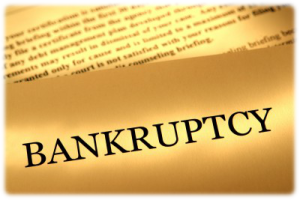A Full Service Law Firm Serving Springfield Branson, Missouri for Over Twenty Two Years
Chapter 7 vs Chapter 13
 Chapter 13 Bankruptcy
Chapter 13 Bankruptcy
The most common misunderstanding people have about a Chapter 13 is believing that all of your debt is paid back through the bankruptcy. This is probably because Chapter 13 bankruptcy requires that a payment is made each month to a Trustee. The most common things that are required to be paid in that payment are your (minimal) trustee fee, short-term secured debt that you want to keep (like your car), tax debt and whatever portion of the fee to your bankruptcy attorney that has not been paid. In most instances, all of your unsecured debt, including medical bills, credit card balances, personal loans, money left owing after a foreclosure or a repossession, broken leases, old cell phone bills, etc., can be wiped out in a Chapter 13 Bankruptcy.
Chapter 13 bankruptcy also helps when you are behind on payments on your home or your car. Chapter 13 will allow you to make up the payments, over as long as 60 months, effectively stopping a foreclosure, garnishment or repossession.
If income taxes are owed for prior years, you can include the tax debt and pay it through your Chapter 13 Bankruptcy as well, and no additional penalties or interest will be added while you are in the Chapter 13 Bankruptcy.
Chapter 13 is usually also easier for most people as it allows payments to be made by a salary deduction directly from your paycheck. And it often works out that the total monthly payment in a Chapter 13 bankruptcy, including car payments, is even lower than you are paying for your car, alone.
Once your petition has been filed, there will be a payment that is usually payroll deducted that will go to the Trustee. This payment will pay for your car payment and any other secured debt, your attorney fee and your Trustee fee. It will last for 3-5 years and, when your bankruptcy is finished, you will have the title to your car, but your unsecured debt, like your credit cards and your medical bills, will be discharged, or erased.
Chapter 13 can also help if you have tried, unsuccessfully, to qualify for a loan modification in the past. There is a provision in the law that states that Chapter 13 debtors must be considered for a loan modification. This is true even if you have been turned down in the past.
In summary, Chapter 13 has several advantages, which include:
- Lower Court Fees.
- Salary deduction by your employer can be used to make payments.
- A payment schedule can be worked out for tax debts.
- Payments that are behind on assets you wish to keep, such as a home, car or TV can be paid over a long period of time.
- Helps with loan modifications
Chapter 7 Bankruptcy
Chapter 7 Bankruptcy is designed to assist clients with mostly medical, credit card or other unsecured debt that they are unable to pay. The debts owed on secured assets (a home, for example) can be “reaffirmed,” meaning you simply agree to continue to make the payments as stated in the original loan documents.
You can also surrender the property back to the lender and not have to pay the balance of the debt. Chapter 7 Bankruptcy usually takes four (4) to six (6) months to complete. Upon completion of the bankruptcy, most unsecured debt is usually eliminated.
The major drawback to a Chapter 7 Bankruptcy is that all legal fees must be paid up front before your case is filed with the court. Consequently, we are not able to get you the court’s protection from your creditors as quickly as a Chapter 13 Bankruptcy.
If you have income over a certain level, the Bankruptcy Court will not allow you to take Chapter 7.
Call us today for a free first visit to find out how bankruptcy can help you.
